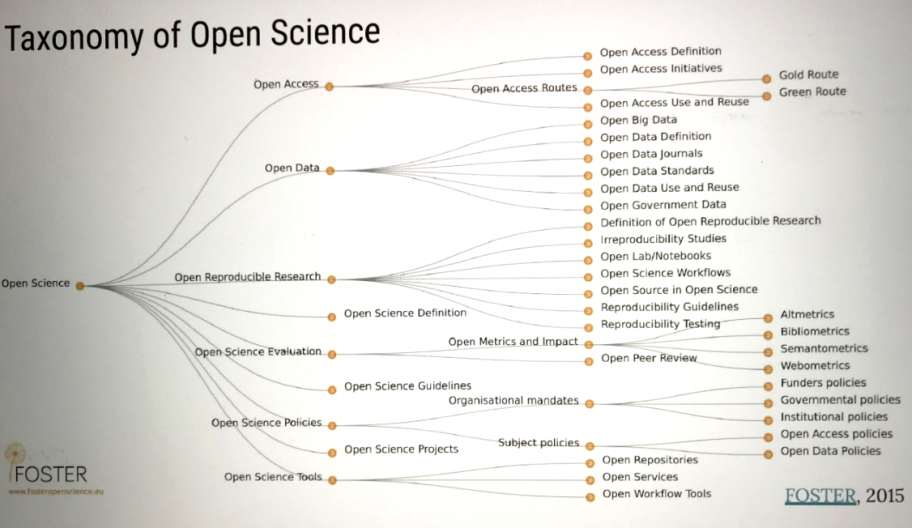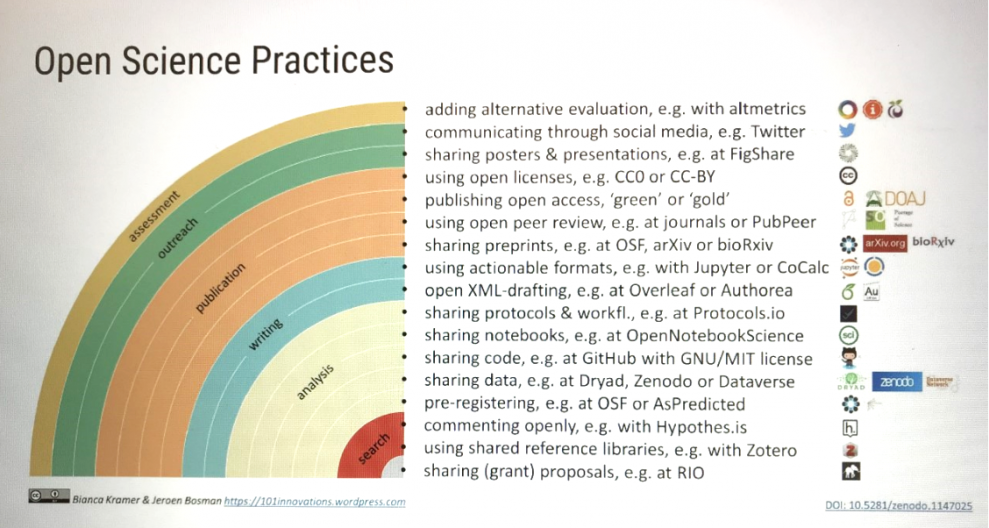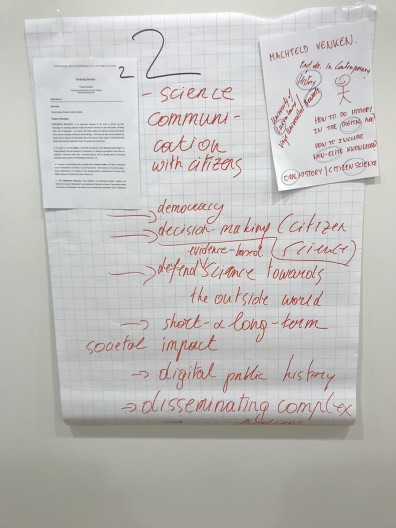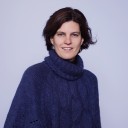The organisers of the symposium, Tamara Heck and Patrick Brimioulle, refer to open science as “a research process that allows for the interaction with stakeholders from industry, the general public, and politics. This requires that the processes are accessible, transparent, and encourage exchange, communication, and collaboration. Thus, Open Science directly contributes to the acquisition of knowledge on all levels of the society and, furthermore, allows for the open validation of this acquired knowledge.”
In his introductory talk, Tobias Steiner presented a series of existing perspectives on open science and open science practices:
He agreed with Campbell (2015) that the thriving field of open science has largely developed alongside that of open education and adhered to the view of Veletsianos and Kimmons (2012) that building bridges between the two fields may facilitate the development of a form of open scholarship that includes all academic activities. Steiner is the author of a timeline on open source, open access and open scholarship (https://flavoursofopen.science/timeline-open-source-open-access-and-open-scholarship) and is lead author of an open access publication on an open scholarship strategy: Steiner, T. (2019, February 17). Grundlagen für die Entwicklung einer Open Scholarship-Strategie. https://osf.io/preprints/socarxiv/hu9sj/. More information about what might be referred to as the “openness turn” in academia can be found in the newly published edited volume “Contextualizing Openness: Situating Open Science” (available in open access): https://www.idrc.ca/en/book/contextualizing-openness-situating-open-science.
By identifying the opportunities offered by open educational resources (OER) for gaining knowledge independent of location and time (Blessinger & Bliss, 2016) and the usefulness of conducting further research on potential links between openness in research and teaching, the organisers set a clear aim for the symposium. Twelve academics took to the floor to present either innovative open education teaching formats or ongoing research on open science and/or open education practices.
Innovative teaching formats using open education methods were presented by Natalia Marakhovska (Using Open Educational Resources in Constructing Students’ Individual Learning Trajectories), Johanna Havemann (Open Science Online Training Package for African Scientists in AfricArxiv), Tamara Pianos and Nicole Krüger (Building an Interactive Open Education Resources Tutorial for Early Career Researchers), Axel Dürkop (Embedding Openness in the Design Process of Web-based Learning Arrangements) and Xenia Schmalz (Going Beyond Statistical Rituals: Improving the Understanding of Statistics Using Blog Posts and Workshops).
Ongoing research on open science and/or open education practices of students and researchers was the main focus of the presentations by Thomas Lösch (Monitoring Researchers’ Open Science Practices in Education), Daniel Otto (Adoption of Open Educational Resources (OER) in Higher Education in Germany: An Explorative Analysis), Tatiana Kvetnaya, Maximilian Frank and others (who looked at “p-hacking” in the statistical analysis of psychological research in their presentation Questionable Research Practices and Open Science in Undergraduate Empirical Projects: Results from a Nationwide Survey Amongst German Psychology Students), Jürgen Schneider (Will Visible Open Science Practices Foster Perceived Integrity of Journal Articles?), Tamara Heck and Patrick Brimioulle (Experiencing Open Practices – a Qualitative Long-term Study Among Early Career Educational Researchers) and Isabel Steinhardt (on the Everyday Digital Open Science Practices of Researchers). All the papers built on a policy report published by the European Commission about practices, beliefs and strategies regarding openness in higher education institutions in several EU Member States: https://publications.jrc.ec.europa.eu/repository/bitstream/JRC99959/lfna27750enn.pdf
Machteld Venken presented her Innoviris-funded project in citizen science, “Bordering Brussels”, a response to the need to provide non-elite knowledge on bordering practices within and beyond Brussels in the past and present, which includes a work package on open education.
During the discussion, the diminishing level of interest within society for science (also referred to as the “crisis of science” (Saltelli & Funtowicz, 2017)) was elaborated on, as was the engagement of citizens throughout the research process as a possible strategy for defending evidence-based science.
All the conference papers were published in open access on Zenodo and can be downloaded at: https://zenodo.org/communities/opine.






